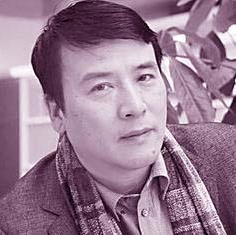Related Research Articles
Leroy Robertson was an American composer and music educator.
Ruth Dorothy Louisa ("Wid") Gipps was an English composer, oboist, pianist, conductor and educator. She composed music in a wide range of genres, including five symphonies, seven concertos and many chamber and choral works. She founded both the London Repertoire Orchestra and the Chanticleer Orchestra and served as conductor and music director for the City of Birmingham Choir. Later in her life she served as chairwoman of the Composers' Guild of Great Britain.
Samuel Hans Adler is an American composer, conductor, author, and professor. During the course of a professional career which ranges over six decades he has served as a faculty member at both the University of Rochester's Eastman School of Music and the Juilliard School. In addition, he is credited with founding and conducting the Seventh Army Symphony Orchestra which participated in the cultural diplomacy initiatives of the United States in Germany and throughout Europe in the aftermath of World War II. Adler's musical catalogue includes over 400 published compositions. He has been honored with several awards including Germany's Order of Merit – Officer's Cross.
Charles Ives's Symphony No. 1 in D minor, written between 1898 and 1902, is an example of how Ives synthesized ideas from composers who came before him. Many of his later symphonies relied on Protestant hymns as the main theme. However, this symphony is composed in the late-Romantic European tradition, and is believed to contain many paraphrases from famous European pieces such as Tchaikovsky's Pathétique and Schubert's Unfinished symphonies and especially Dvořák's New World Symphony.

Kenneth Daniel Fuchs is a Grammy Award-winning American composer. He currently serves as Professor of Music Composition at the University of Connecticut in Storrs, Connecticut.

Ye Xiaogang is a Chinese composer of contemporary classical music.
Kevin Matthew Puts is an American composer, best known for his opera The Hours and for winning a Pulitzer Prize in 2012 for his first opera Silent Night and a Grammy Award in 2023 for his concerto Contact.
Zachary Carrettin is an American violinist, violist, conductor, and music educator. Carrettin is currently the Music Director of Boulder Bach Festival.
Margaret Brouwer is an American composer and composition teacher. She founded the Blue Streak Ensemble chamber music group.
Peter Scott Lewis is an American composer of contemporary classical music.
Gabriela Lena Frank is an American pianist and composer of contemporary classical music.
Eduardo Alonso-Crespo is an Argentine composer of classical music.
Richard Todd is a French horn player from California. He was worked in jazz, classical, and pop music.

Peter Boyer is an American composer, conductor, orchestrator, and professor of music, based in Altadena, in the San Gabriel foothills just north of Los Angeles, California. He is known primarily for his orchestral works, which have received over 600 performances, by more than 250 orchestras.
Louis Karchin is an American composer, conductor and educator who has composed over 90 works including unaccompanied and chamber music, symphonic works and opera.
Brian Asher Alhadeff is an internationally recognized American conductor of opera, ballet, symphony, and musical theater. He is the General and Artistic Director, of Opera San Luis Obispo, in addition to its Principal Conductor. He is also principal conductor of Civic Ballet San Luis Obispo and State Street Ballet of Santa Barbara, California. He is known for his efforts in promoting opera relevancy through expanded collaboration between opera companies and other arts organizations that have key participation in opera production: symphonies, choruses, and ballet and dance organizations.
Festival Mozaic is an annual orchestral and chamber music festival held in the city of San Luis Obispo and various venues throughout San Luis Obispo County, California. Festival Mozaic is organized and presented by The San Luis Obispo Mozart Festival Association, a nonprofit organization governed by a board of local leaders and a managing staff of professionals. The festival presents 20 musical events during July with 500+ people in attendance each year.
Jessie Montgomery is an American composer, chamber musician, and music educator. Her compositions focus on the vernacular, improvisation, language, and social justice.

Scott Yoo is an American conductor and violinist. He was appointed Chief Conductor and Artistic Director of the Mexico City Philharmonic Orchestra in 2016. He hosts the PBS TV series Now Hear This.

The Carnegie Collection of British Music was founded in 1917 by the Carnegie Trust to encourage the publication of large scale British musical works. Composers were asked to submit their manuscripts to an anonymous panel. On the panel at various times were Hugh Allen, Granville Bantock, Arnold Bax, Dan Godfrey, Henry Hadow and Donald Tovey. Up to six works per year were chosen for an award – publication at the expense of the Trust, in conjunction with music publishers Stainer & Bell. Unfortunately the war delayed things for the earliest prizewinners. The first to be published was the Piano Quartet in A minor by Herbert Howells.. By the end of 1920 some 13 works were available. 30 were out by the end of 1922, and when the scheme finally closed in 1928 some 60 substantial works that might not otherwise have seen the light of day had been issued under the Carnegie Collection of British Music imprint.
References
- ↑ anon (2010). "Russell, Craig". Naxos Classical Composers. Naxos Digital Services Ltd. Retrieved 4 February 2010.
- ↑ Kearns, William K. (Summer 2006). "Rhapsody for Horn and Orchestra; Middle Earth; Gate City—A Methodist Hymn". American Music. 24 (2). University of Illinois Press: 254–255. doi:10.2307/25046027. JSTOR 25046027.
- ↑ "Nacho Libre (2006)" . Retrieved 17 September 2018– via www.imdb.com.